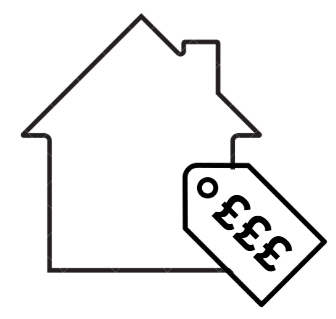Selling your home is a significant decision, and navigating the process smoothly requires careful planning. While most of the focus goes on your property’s presentation and pricing, the legal side of the sale is equally crucial – this is known as conveyancing. Here’s how to avoid common pitfalls in both areas…
- Overpricing Your Property

A high asking price can deter potential buyers and result in your property lingering on the market. If your home remains unsold for an extended period, you may need to reduce the price, which can signal to buyers that there’s something wrong with the property. It is essential to set a realistic price based on comparable properties in your area and current market conditions.
2. Neglecting to Prepare for Viewings
First impressions are crucial. A cluttered, untidy or poorly maintained home can turn off prospective buyers. Simple tasks like cleaning, decluttering and making minor repairs can make a significant difference. Consider staging your home to highlight its best features and help buyers visualise themselves living there.

If you’d like to read more on preparing your home for viewings, click here to read our earlier blog post, which offers practical tips and insights to enhance your property’s appeal.
3. Not Appointing a Conveyancing Solicitor
By appointing a conveyancer early in the selling process, this allows them to prepare essential legal documents such as title deeds and the TA6 form, ahead of time. Your conveyancer will conduct the necessary property searches and address potential issues before they become obstacles, expediting the overall transaction.
4. Failing to Disclose Property Issues
Concealing problems like structural issues, damp or disputes can lead to legal complications and could derail the sale. You should complete the TA6 form accurately and honestly. Honesty builds trust with buyers and reduces problems down the line.

5. Choosing the Wrong Buyer
Although a high offer is very tempting, it is essential to consider the buyer’s position. Assess whether they are a cash buyer, have a mortgage in principle, or are part of a lengthy property chain. A buyer with a secure financial position is less likely to cause delays or complications.
6. Not Understanding Leasehold Implications
If you’re selling a leasehold property, ensure you understand the lease terms such as ground rent and service charges. Buyers may require information about the lease’s length and any associated costs. Being prepared with this information can prevent delays and any misunderstanding.
7. Poor Marketing
Effective marketing is crucial in property sales, and professional photography plays a pivotal role. High quality images will significantly enhance your property’s online presence, attracting more potential buyers. Collaborating with a skilled estate agent ensures your home is presented in its best light.

Avoiding these common mistakes can facilitate a smoother and more efficient home-selling process. By addressing legal aspects early, being transparent with buyers and selecting the right professionals, you can navigate the complexities of selling your home with confidence.
